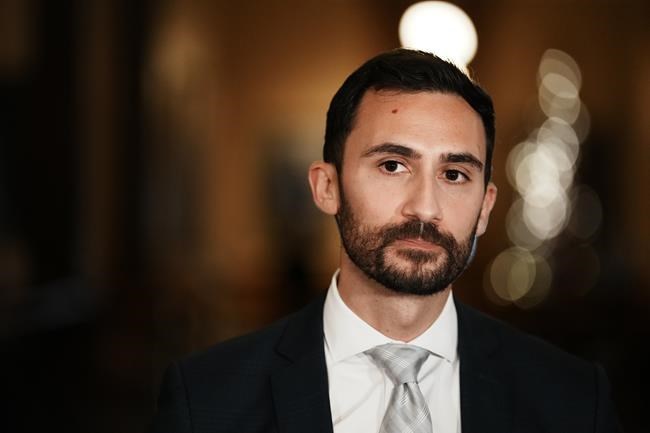TORONTO — Ontario's public school boards are calling on the province to lift a moratorium on school closures and to finally complete a review – started six years ago – of how those closure decisions get made.
The previous Liberal government first promised the review and enacted the moratorium in 2017, when it was under fire from the Opposition Progressive Conservatives and parents over school closures. Some families, particularly those from rural areas, advocated at the time for the moratorium, saying school closures "tear a hole" in the heart of a community.
Since the moratorium was put in place, school boards have been "delicately balancing the upkeep of aging infrastructure, shifting enrolment, and financial pressures while doing their best to deliver quality programming in their schools," the Ontario Public School Boards' Association said.
Six years in, boards are facing "unsustainable funding deficits," because it costs the same to maintain and heat a school whether it's full or at 25 per cent capacity, the association said.
"For a long time, for months, we've been told, 'yep, they're still looking at it,'" president Cathy Abraham said in an interview.
"But it's gone on for a long time and ... school boards have some financial decisions to make."
Education Minister Stephen Lecce's office did not answer questions on whether the review has been completed or if the moratorium will be lifted.
“We are not closing schools," spokesperson Grace Lee said in a statement.
"Our government is delivering $14 billion to upgrade existing schools and build new state-of-the-art schools across Ontario with a focus on STEM learning, improved accessibility and technology."
NDP Leader Marit Stiles said it's "unsettling" that the government is trying to pretend it's not an issue for boards.
"If they're not going to close schools, and of course, all of us have issues around that, but if they're not going to allow boards to close schools, they have to be able to properly fund boards, to be able to build the new schools that they need," she said.
Mitzie Hunter, the Liberal education minister who announced the moratorium, said it wasn't meant to be in place for six years.
"It was meant to be a pause so that we could develop a new system of reviewing schools that really gave stronger voice to students, to parents and to community, as well as integrated into the municipality," she said.
"They also wanted to have a little bit more involvement in the process because the school is so central to the growth of communities, particularly in rural communities."
In the spring of 2017, Hunter as education minister said there were 43 reviews involving 300 schools potentially on the chopping block at the time, and that in the 2016-17 academic year, boards decided to close 19 schools.
The NDP had also discovered in 2017 through a freedom-of-information request that 277 net schools had closed since 2011 – a number that came from a total of 333 schools closed with 56 replacements opening.
Abraham said all of the factors that made school closures such a politically sensitive issue at the time are still in place, and the public school boards association recognizes them.
"There is still a lot of concern by rural schools or rural councils ... We are not insensitive to that," she said.
The association says a "school consolidation" can often offer better experiences, such as more program options and modern and energy-efficient buildings.
"People get emotionally attached to their schools, we get it," she said. "But if you really want to provide the very best we can, we need to be able to talk about what's happening now, and is that what's happening in that school? Or could we be doing this in a different and better way?"
This report by The Canadian Press was first published Feb. 24, 2023.
Allison Jones, The Canadian Press



